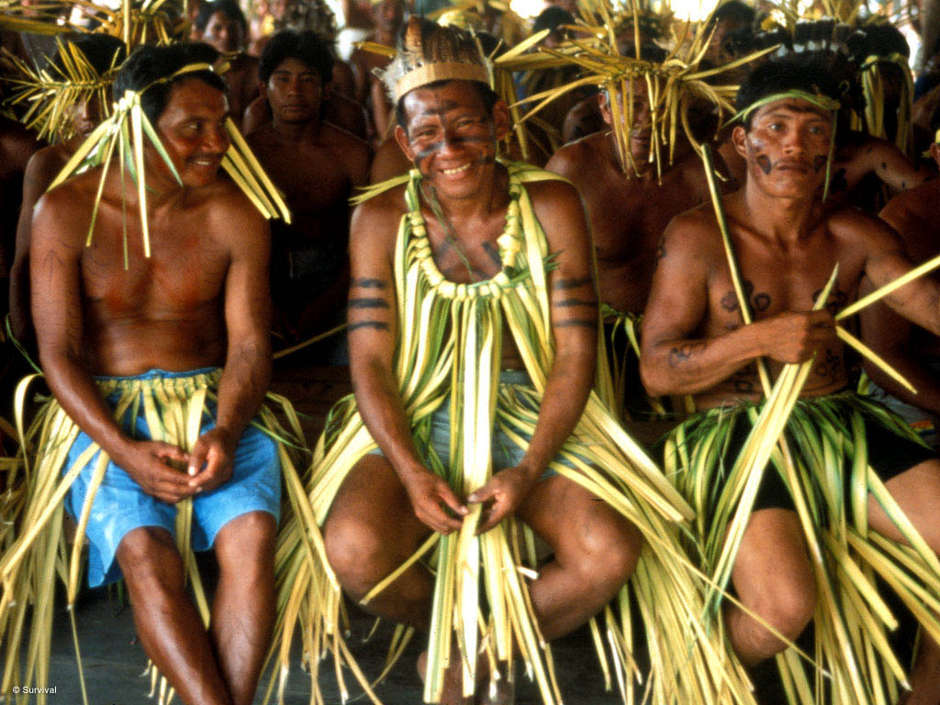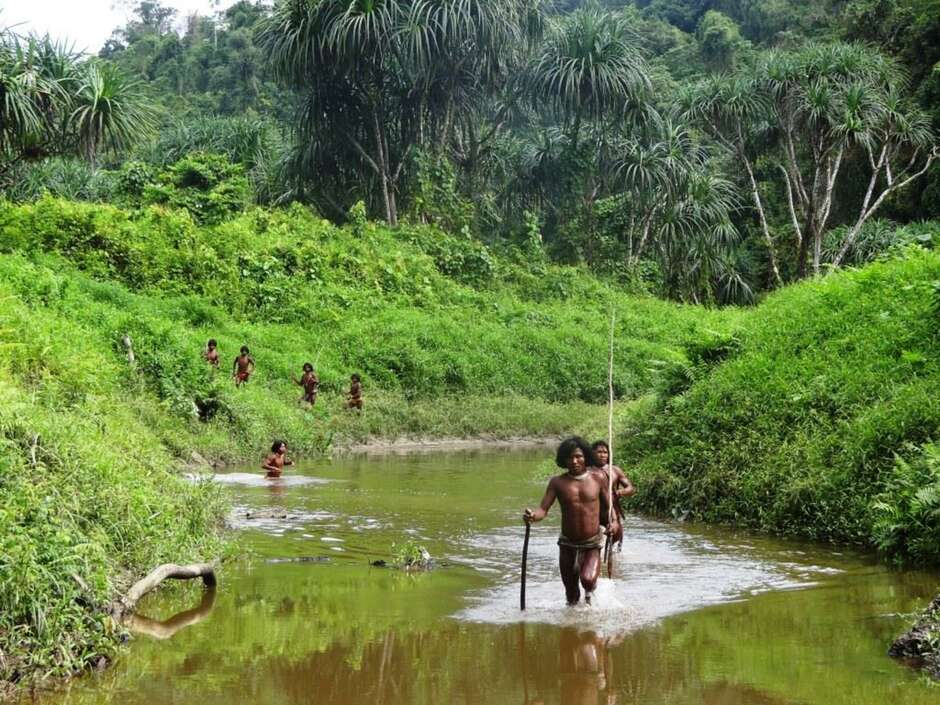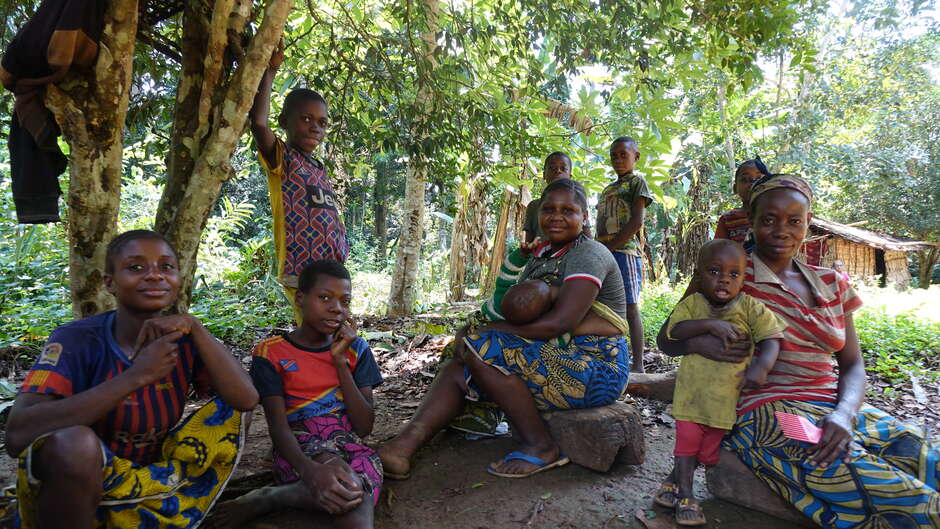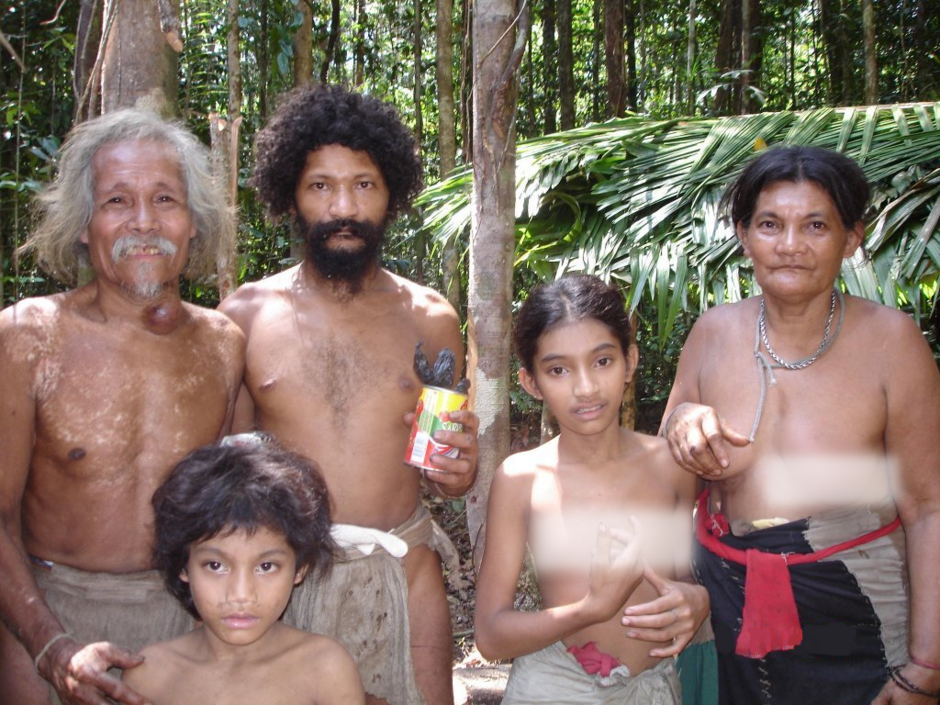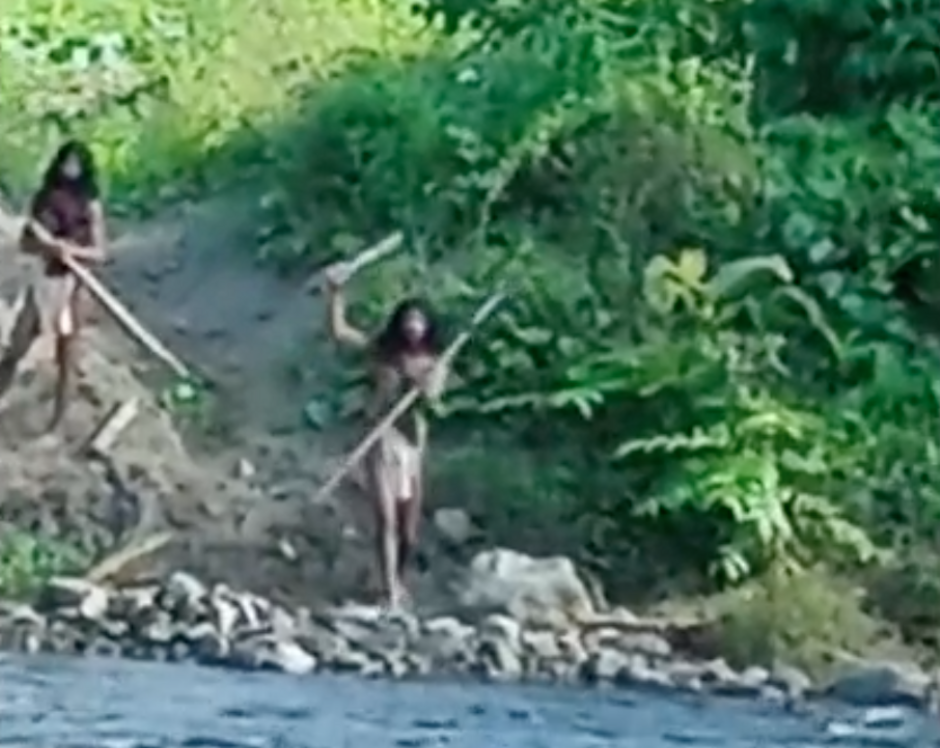Why publishing this man's image could save his life
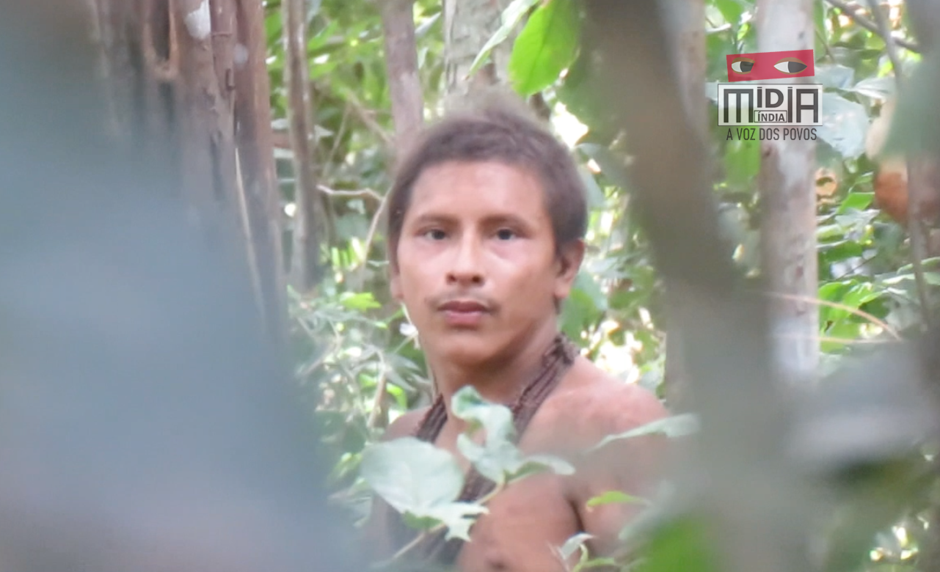
The man in the forest doesn’t know he’s being watched. He doesn’t know there’s a camera in the bushes following his every move. He doesn’t know that soon his face will be on the front of newspapers, that this secretly shot footage of him will be shared on social media channels worldwide. It seems wrong somehow, that this man does not know this, did not ask for it, did not consent to it. Is it ok to keep watching him? Suddenly, he catches sight of the camera and runs away as fast as he can.
Spying on people from the bushes seems profoundly distasteful, but in this very unique instance, this footage will actually help save this man’s life, and the lives of others like him. He is a member of a tribe called the Awá, and his group of Awá people have chosen to remain uncontacted, avoiding all interaction with the dominant society.
There are more than one hundred uncontacted tribes around the world today and they are the most vulnerable people on the planet. They have no resistance to common diseases like flu and measles, and whole populations are being wiped out by violent outsiders who want to steal their land and resources. All uncontacted tribes face catastrophe unless their land is protected.
The footage of this uncontacted Awá man was filmed by a neighboring tribe, the Guajajara, who are trying to protect the rainforest in which these two tribes live. The forest in the area is being rapidly destroyed, and Guajajara groups regularly patrol the forests to monitor incursions and evict loggers. Many of them have faced death threats, and some have been murdered: around 80 Guajajara have been killed in the area since 2000.
Edivan Guajajara, of Mídia Índia, the Indigenous media company who released the footage, says:
“The Guajajara and Awá are constantly threatened by the invaders. The Brazilian government does not uphold its duty to protect them. Guajajara are murdered for defending their home, their land, their people. We just want to live in peace, without deforestation, without invasion, we just want our rights to be respected. We are asking for help.”
Releasing footage like this has been proven as one of the best possible ways to obtain that help. Survival International is the only organisation fighting worldwide to stop the annihilation of uncontacted tribes and, in collaboration with Indigenous organisations, has released several films of uncontacted peoples. The footage, and the surrounding media coverage, raises awareness of and concern for uncontacted people better than anything else, which means these highly vulnerable people are more likely to get the help they need.
Images like this are a wake-up call for the world; they galvanise people to act in support of uncontacted tribes and hold to account governments and big business who would steal their land and end their lives. It is certainly uncomfortable to watch someone who doesn’t know they are being filmed, but the fact that releasing this film could help save lives, indeed, could help save whole tribes, must surely outweigh the privacy concerns. Erisvan Guajajara, also of Mídia Índia, explains:
“We didn’t have the Awá’s permission to film, but we know that it’s important to use these images because if we don’t show them around the world, the Awá will be killed by loggers. We need to show that the Awá exist and their lives are at risk. We’re using these images as a cry for help and we’re calling for the government to protect the lives of our relatives who don’t want contact with outsiders.”

